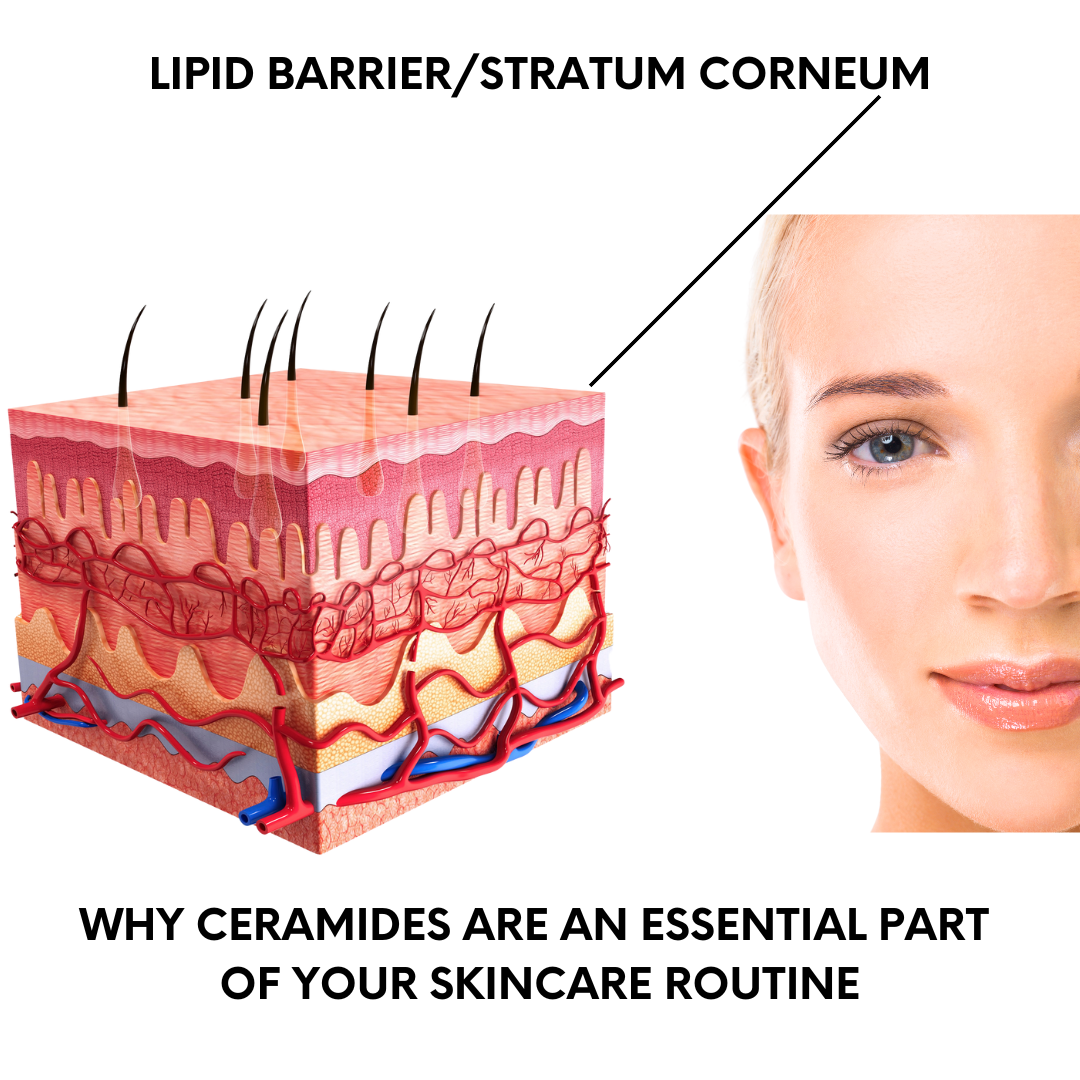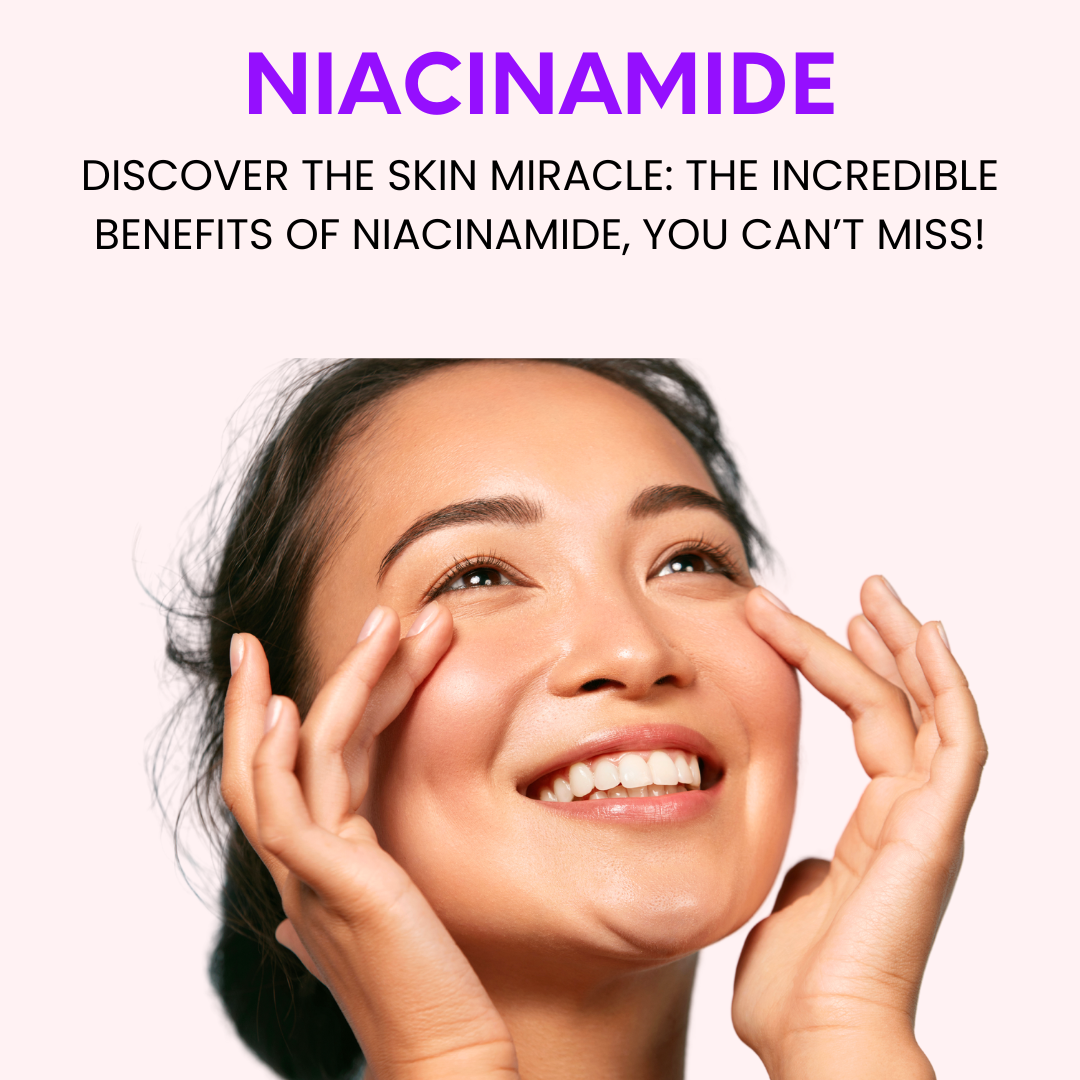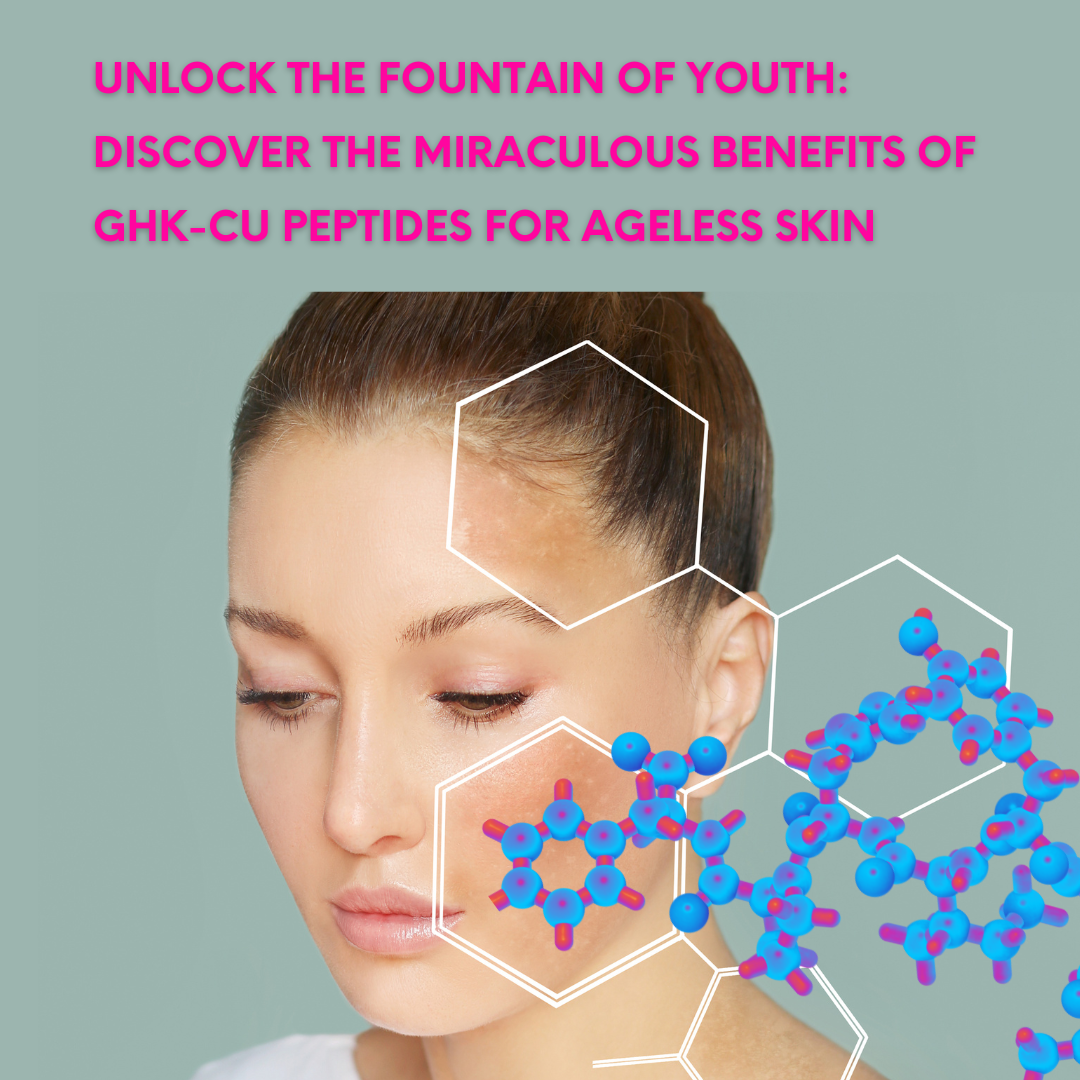
Unlock Radiant Skin Today! The Untold Power of Ceramides and a Strong Skin Barrier
Understanding the Importance of the Skin Barrier, Stratum Corneum and How Ceramides can be a Skincare Game Changer!
The Benefits of Ceramides in Skincare
Ceramides, a family of lipid molecules, play a crucial role in maintaining the skin's barrier function and hydration. These naturally occurring components are pivotal for skin health, making them a popular ingredient in modern skincare formulations. This essay explores the extensive benefits of ceramides in skincare, their role in skin barrier function, hydration, anti-aging, and overall skin health, supported by scientific research and expert insights. Clear 6 Serum is loaded with ceramides and has zero ingredients that could strip your skin barrier!
Understanding Ceramides
What are Ceramides?
Ceramides are a class of lipids known as sphingolipids, which are essential components of the stratum corneum, the outermost layer of the skin. They comprise about 50% of the skin's lipid barrier, alongside cholesterol and free fatty acids. These lipids are crucial for maintaining the skin's structural integrity and hydration.
Role of Ceramides in Skin Barrier Function
The primary role of ceramides in the skin is to form a barrier that prevents transepidermal water loss (TEWL) and protects against external aggressors such as pollutants, bacteria, and allergens. This barrier function is vital for maintaining skin hydration and overall health. When the skin barrier is compromised, it can lead to various skin issues, including dryness, irritation, and increased sensitivity.
Benefits of Ceramides in Skincare
Enhancing Skin Barrier Function
Ceramides are fundamental in reinforcing the skin's barrier function. They fill the gaps between skin cells, creating a protective layer that prevents moisture loss and shields the skin from environmental damage. According to a study published in the "Journal of Investigative Dermatology," ceramide-deficient skin exhibits increased TEWL, leading to dryness and sensitivity (Madison, 2003).
Improving Skin Hydration
One of the most well-known benefits of ceramides is their ability to improve skin hydration. By forming a lipid barrier, ceramides help retain moisture within the skin, ensuring it remains supple and hydrated. This is particularly beneficial for individuals with dry or dehydrated skin. A study in the "Journal of Dermatological Science" found that ceramide-containing moisturizers significantly improved skin hydration and reduced dryness in individuals with atopic dermatitis (Draelos, 2008).
Anti-Aging Benefits
Ceramides play a crucial role in anti-aging skincare. As we age, the natural production of ceramides in the skin decreases, leading to a compromised skin barrier and increased dryness, which can accelerate the formation of fine lines and wrinkles. By replenishing ceramides through skincare products, it is possible to maintain a healthy skin barrier, improve hydration, and reduce the appearance of aging signs. Research published in the "International Journal of Molecular Sciences" highlights the anti-aging benefits of ceramides, noting their ability to improve skin elasticity and reduce wrinkles (Jung et al., 2018).
Soothing Sensitive and Irritated Skin
Ceramides have anti-inflammatory properties that can help soothe sensitive and irritated skin. They help to repair and restore the skin barrier, reducing redness, irritation, and sensitivity. This makes ceramide-rich products ideal for individuals with conditions like eczema, psoriasis, and rosacea. A clinical study in "Acta Dermato-Venereologica" demonstrated that ceramide-containing formulations significantly reduced symptoms of eczema and improved skin barrier function (Chamlin et al., 2002).
Supporting Overall Skin Health
Ceramides contribute to overall skin health by maintaining the integrity of the skin barrier and preventing the penetration of harmful substances. This protective function helps reduce the risk of infections and other skin problems. Furthermore, ceramides support the skin's natural repair processes, promoting faster healing of damaged skin.
Scientific Research on Ceramides
Clinical Studies and Findings
Numerous clinical studies have demonstrated the effectiveness of ceramides in skincare. For example, a study published in the "British Journal of Dermatology" found that ceramide-based moisturizers significantly improved skin hydration and barrier function in individuals with dry skin conditions (Haftek et al., 2001). Another study in the "Journal of Cosmetic Dermatology" reported that ceramide-containing creams effectively reduced TEWL and improved skin hydration in aging skin (Bouwstra et al., 2003).
Mechanisms of Action
Ceramides function by forming a lamellar structure in the stratum corneum, which mimics the skin's natural lipid barrier. This structure helps to lock in moisture and protect against external irritants. Research in the "Journal of Lipid Research" has shown that the application of ceramides can restore the lipid barrier and improve skin hydration, highlighting their importance in skincare formulations (Hamanaka et al., 2002).
Applications of Ceramides in Skincare Products
Types of Ceramide-Containing Products
Ceramides are incorporated into various skincare products, including moisturizers, serums, cleansers, and treatments. Each product type offers unique benefits, making it essential to choose the right formulation for specific skin concerns.
-
Moisturizers: Ceramide-rich moisturizers are ideal for daily use to maintain hydration and support the skin barrier. They are particularly beneficial for dry, sensitive, and aging skin.
-
Serums: Ceramide serums provide a concentrated dose of ceramides and other active ingredients to target specific skin issues such as dryness, fine lines, and irritation.
-
Cleansers: Ceramide-infused cleansers help maintain the skin's lipid barrier while effectively removing impurities, making them suitable for sensitive and dry skin types.
-
Treatment Products: These include masks, oils, and balms that offer intensive care for skin conditions like eczema, psoriasis, and rosacea.
How to Use Ceramide-Containing Products
To maximize the benefits of ceramide-containing products, it is essential to use them correctly within a skincare routine:
-
Cleanse: Start with a gentle ceramide-infused cleanser to remove dirt and impurities without stripping the skin's natural oils.
-
Serum: Apply a ceramide serum to deliver a concentrated dose of ceramides and other beneficial ingredients to the skin.
-
Moisturize: Follow with a ceramide-rich moisturizer to lock in hydration and reinforce the skin barrier.
-
Additional Treatments: Use ceramide-based masks or balms as needed for extra hydration and repair.
Comparing Ceramides with Other Skincare Ingredients
Ceramides vs. Hyaluronic Acid
Both ceramides and hyaluronic acid are essential for maintaining skin hydration, but they function differently. Hyaluronic acid is a humectant that attracts and retains moisture in the skin, while ceramides form a barrier that locks in moisture and prevents TEWL. Using both ingredients together can provide comprehensive hydration and barrier support.
Ceramides vs. Peptides
Peptides are short chains of amino acids that stimulate collagen production and improve skin elasticity. While ceramides focus on barrier repair and hydration, peptides target firmness and anti-aging. Combining ceramides and peptides can address multiple aspects of skin health, including hydration, barrier function, and anti-aging.
Ceramides vs. Retinoids
Retinoids, including retinol, are derivatives of vitamin A that promote cell turnover and collagen production, making them effective for anti-aging and acne treatment. However, retinoids can be irritating, especially for sensitive skin. Ceramides can help mitigate the dryness and irritation caused by retinoids by strengthening the skin barrier and providing hydration.
Expert Insights on Ceramides
Dermatologists' Perspectives
Dermatologists widely recommend ceramides for their ability to improve skin health and treat various skin conditions. Dr. Joshua Zeichner, a board-certified dermatologist, explains, "Ceramides are like the mortar between bricks in a wall, filling in the spaces between skin cells and creating a protective barrier that keeps moisture in and irritants out" (Zeichner, 2021).
Skincare Specialists' Views
Skincare specialists also emphasize the importance of ceramides in maintaining a healthy complexion. Renee Rouleau, a celebrity esthetician, states, "Ceramides play a critical role in keeping the skin's barrier intact and functioning properly. Without enough ceramides, the skin becomes dry, sensitive, and prone to irritation" (Rouleau, 2021).
Future Directions and Innovations
Advances in Ceramide Technology
The skincare industry continues to innovate with ceramide formulations to enhance their efficacy and stability. New delivery systems, such as encapsulated ceramides, are being developed to improve penetration and provide sustained release of ceramides into the skin.
Combining Ceramides with Other Actives
Future skincare products are likely to feature advanced formulations that combine ceramides with other active ingredients, such as antioxidants, peptides, and growth factors, to provide comprehensive skin benefits. These multi-functional products aim to address various skin concerns simultaneously, offering a more holistic approach to skincare.
Conclusion
Ceramides are a vital component of healthy skin, offering numerous benefits that include enhancing skin barrier function, improving hydration, providing anti-aging effects, and soothing sensitive and irritated skin. Scientific research and expert insights underscore the importance of incorporating ceramides into skincare routines to maintain overall skin health and address specific skin concerns.
Whether you have dry, sensitive, aging, or compromised skin, ceramide-containing products can help restore and maintain the skin's natural barrier, ensuring it remains hydrated, protected, and resilient. By understanding the benefits of ceramides and how to use them effectively, you can achieve a healthier, more radiant complexion.




Leave a comment
This site is protected by hCaptcha and the hCaptcha Privacy Policy and Terms of Service apply.